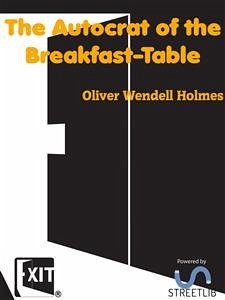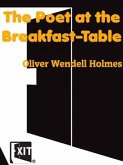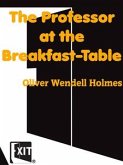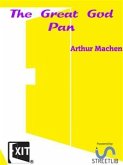CHAPTER I
I was just going to say, when I was interrupted, that one of the many ways of classifying minds is under the heads of arithmetical and algebraical intellects. All economical and practical wisdom is an extension or variation of the following arithmetical formula: 2+2=4. Every philosophical proposition has the more general character of the expression a+b=c. We are mere operatives, empirics, and egotists, until we learn to think in letters instead of figures.
They all stared. There is a divinity student lately come among us to whom I commonly address remarks like the above, allowing him to take a certain share in the conversation, so far as assent or pertinent questions are involved. He abused his liberty on this occasion by presuming to say that Leibnitz had the same observation.—No, sir, I replied, he has not. But he said a mighty good thing about mathematics, that sounds something like it, and you found it, not in the original, but quoted by Dr. Thomas Reid. I will tell the company what he did say, one of these days.
—If I belong to a Society of Mutual Admiration?—I blush to say that I do not at this present moment. I once did, however. It was the first association to which I ever heard the term applied; a body of scientific young men in a great foreign city who admired their teacher, and to some extent each other. Many of them deserved it; they have become famous since. It amuses me to hear the talk of one of those beings described by Thackeray—
I was just going to say, when I was interrupted, that one of the many ways of classifying minds is under the heads of arithmetical and algebraical intellects. All economical and practical wisdom is an extension or variation of the following arithmetical formula: 2+2=4. Every philosophical proposition has the more general character of the expression a+b=c. We are mere operatives, empirics, and egotists, until we learn to think in letters instead of figures.
They all stared. There is a divinity student lately come among us to whom I commonly address remarks like the above, allowing him to take a certain share in the conversation, so far as assent or pertinent questions are involved. He abused his liberty on this occasion by presuming to say that Leibnitz had the same observation.—No, sir, I replied, he has not. But he said a mighty good thing about mathematics, that sounds something like it, and you found it, not in the original, but quoted by Dr. Thomas Reid. I will tell the company what he did say, one of these days.
—If I belong to a Society of Mutual Admiration?—I blush to say that I do not at this present moment. I once did, however. It was the first association to which I ever heard the term applied; a body of scientific young men in a great foreign city who admired their teacher, and to some extent each other. Many of them deserved it; they have become famous since. It amuses me to hear the talk of one of those beings described by Thackeray—









